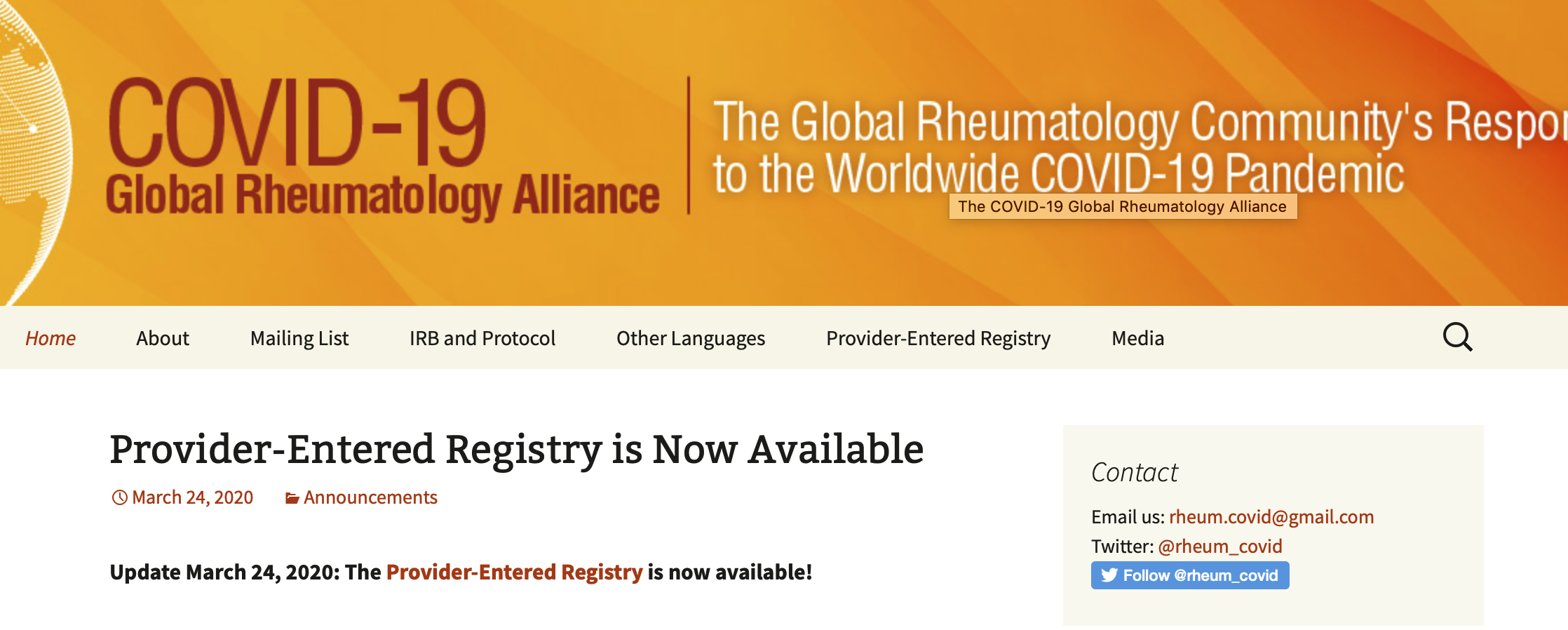Australian rheumatologists are leading the effort to protect patients from COVID-19, establishing a new global alliance earlier this month
Australian rheumatologists are leading the effort to protect patients from COVID-19, establishing a new global alliance on 12 March.
The organisation is still in a very early stage of development as it was formed rapidly to respond to the COVID-19 pandemic. But it already has a website and a Twitter account.
The group also just launched a registry for healthcare workers around the world to record data about their rheumatology patients with COVID-19 infections.
This registry is currently open for adult patients (aged 19 years and over) in all parts of the world, except for countries that are part of EULAR. That organisation may be on board with its own data sharing arrangements in a few days, the website states.
Dr Philip Robinson, a clinical and academic rheumatologist at the Royal Brisbane Hospital in Queensland, is the chair of governance and policy for the group. Dr David Liew, a rheumatologist based in Victoria, is the regional lead for Australia.
The alliance hopes to create a source of information that will help rheumatologists in assessing and treating patients with rheumatological disease and COVID-19.
This kind of data sharing is vital as very little is known about how COVID-19 affects patients with rheumatological disease or patients taking DMARDs.
“At the moment, we’re fielding many phone calls and email messages from patients who have an autoimmune condition and who happen to be on a variety of medications called DMARDs (disease modifying agents) and/or prednisone,” says Dr Irwin Lim, a Sydney-based rheumatologist and the editor of Rheumatology Republic.
“These medications have the potential to be immunosuppressive. So, the obvious worry for people is whether they will be more likely to contract a COVID-19 infection, and whether they may have a more severe illness [if they are taking these medications].
“I’d like to make it clear that we really are not sure about this because so much is unknown about this virus. At this point in time, the advice by rheumatology groups around the world is to not hastily stop any of these medications.
“For one, having a flare of the underlying autoimmune disease might actually increase one’s risk of getting unwell and it might actually end up increasing the requirements for a drug like prednisone, which would increase risk even higher.
“A drug like prednisone should never be stopped immediately without discussing it with a doctor beforehand. With the DMARDs, such as methotrexate… and the biologic demands, such as Humira, Actemra, Cosentyx and Simponi, we would suggest that patients actually contact their rheumatologist to discuss the options during this difficult time.”
A message to our immunosuppressed rheumatology patients. I had to make this after responding to multiple emails from my understandably anxious patients. Hope it helps in some way. https://t.co/Tp9XlkwWWr
— Dr Irwin Lim (@_connectedcare) March 17, 2020


